Elastomers
324 products.
Filter by Application
[Close]
24 products.
[Close all]
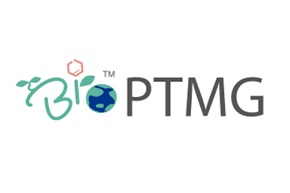
BioPTMG is a polyether polyol manufactured from plant-derived raw materials.
BioPTMG has the same performance as petroleum-derived PTMG as a raw material for polyurethane and polyester resins and has excellent impact, wear and hydrolysis resistance, flexibility at low temperatures, etc. Taking advantage of these characteristics, it can be used in a wide range of fields, from interior and fashion to industrial materials.
- Grades:
- BioPTMG650、BioPTMG1000、BioPTMG2000、BioPTMG3000
- Japan, Chemical Substances Control Law:
- (7)-129
- Japan, Poisonous and Deleterious Substances Control Law:
- Not applicable.
- Japan, Fire Services Law:
- Hazardous Material Class 4 Petroleums No.4 Hazardous Rank III(BioPTMG650)
Combustible Materials, Flammable Solids(BioPTMG1000, 2000, 3000)
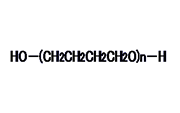
PTMG (Poly(tetramethylene ether)glycol / PTMG) is a linear polyether glycol with hydroxyl groups on both ends. As a polyol, it reacts readily with isocyanates (for example MDI, TDI), etc. to make resins with excellent properties.
- Grades:
- PTMG250、PTMG650、PTMG850、PTMG1000、PTMG1300、PTMG1500、PTMG1800、PTMG2000、PTMG3000、PTMG3200(developed grade in mass production)
- Japan, Chemical Substances Control Law:
- METI-No. 7-129
- Japan, Poisonous and Deleterious Substances Control Law:
- Not applicable.
- Japan, Fire Services Law:
- Hazardous Material Class 4 Petroleums No.3 Hazardous Rank III (PTMG250)
Hazardous Material Class 4 Petroleums No.4 Hazardous Rank III (PTMG650,850)
Combustible Materials, Flammable Solids (PTMG1000, 1300, 1500, 1800, 2000, 3000, 3200(developed grade in mass production))
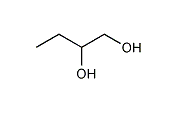
12BG (1,2-butanediol) is a branched glycol that has a primary hydroxyl group and a secondary hydroxyl group on adjacent carbon atoms. Mitsubishi Chemical Corporation offers two grades of purity. Both can be reacted with a dicarboxylic acid (e.g., phthalic acid or adipic acid) for use as a polyester polyol or a plasticizer, or reacted with an unsaturated dicarboxylic acid (e.g., maleic anhydride) for use as a raw material for unsaturated polyester resin. The high-purity grade 12BG is suitable for use as a solvent for inks and as a raw material for surfactants.
- EINECS: No. 209-527-2
- Chemical Substance Control Law (CSCL): METI-No. 2-235
- Japan, Industrial Safety and Health Act (ISHA): No. 2-235
- Japan, Poisonous and Deleterious Substances Control Act: Not applicable.
- Japan, Fire Service Act:Hazardous Materials, Category IV—Class III petroleums (water soluble liquids)
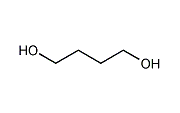
14BG (1,4-Butanediol) is a straight chain glycol with hydroxyl groups on both ends. It is used as a raw material for high performance polyester and polyurethane resins as well as for industrial chemicals like tetrahydrofuran and gamma-butyrolactone. Since 1982, Mitsubishi Chemical's Tokai plant has produced high-purity, high-quality 14BG from butadiene using our proprietary technology.
- EINECS: No. 203-786-5
- Japan, Chemical Substances Control Law: METI-No. 2-235
- Japan, Industrial Safety and Health Law: No. 2-235
- Japan, Poisonous and Deleterious Substances Control Law: Not applicable.
- Japan, Fire Services Law: Hazardous material Class 4 Petroleums No.3 (water-soluble liquid).
Polycarbonatediol, BENEBiOL™
[Close]
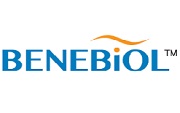
Polycarbonatediol(PCD) is a linear polycarbonate with hydroxyl groups at both ends. It easily reacts with isocyanate compounds(e.g. MDI, TDI, IPDI, H12MDI), and generates polymers with characteristics such as durability and chemical/hydrolysis resistance. BENEBiOL™ is the biomass-based PCD developed by our proprietary manufacturing technology. Because of “key monomer“ of each grade, polyurethane resins based on BENEBiOL™ will show an outstanding property level with regard to flexibility and chemical/stain resistance for example, in addition to the characteristics of conventional PCD. Besides, your product will be equipped with unique touch and feeling.Biomass-based polycarbonatediol with superior characteristics
Characteristics of polyurethane resins based on BENEBiOL™
non-edible raw material is used for some grades
transparency, stain resistance, chemical resistance, durability, toughness, weather resistance
flexibility, soft feel and touch, high hardness, good fit

Zelas™ CP is a polymer compound products based on amorphous polyolefin with high transparency, which is designed to be suitable as a material for medical devices such as medical vials and syringes that require low adsorption of pharmaceuticals and high hygiene.
Zelas™CP has excellent heat-sealing and dissimilar-material adhesion properties, and can be applied as an inner layer of two-color molding or backing, contributing to improved design of medical device components.
※For industrial applications and when good adhesion to metal is required, we introduce Tefabloc™ CP .
TREXPRENE™ TPV (Thermoplastic Vulcanizate) is a heat stabilized, vulcanized PP / EPDM product. Globally available for a wide range of applications and approved to a variety of Automotive Specifications.
TEFABLOC™ is versatile family of thermoplastic elastomers (TPE). Applies to most of the environments and plastic converting processes.
TEFABLOC™ incorporates several technologies including TPE-S, TPO and TPE-E. Among the large scale of possible properties, some of them are also boosted in process by reactor or dynamic cross-linking.The accurate combination of features leads to tightly satisfy application specifications even the most demanding ones.
ZELAS™ are polymers designed for medical applications including R-TPO, specialty TPE compounds and tie layer resins. Specific solutions designed for film, tube and injected components for medical applications.
Sunprene™ is high performance flexible PVC-P compounds for demanding environments with outstanding aesthetics.
- Product Finder
-


